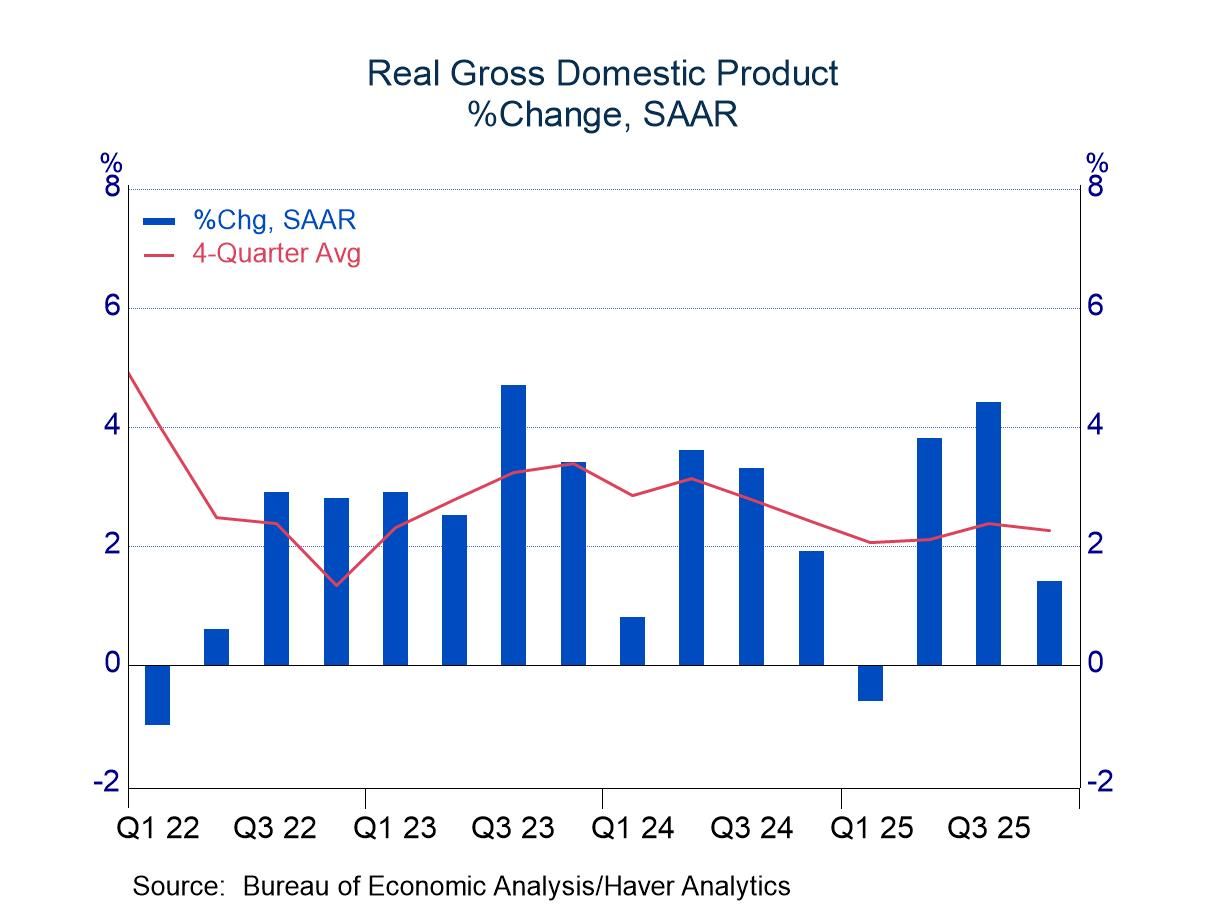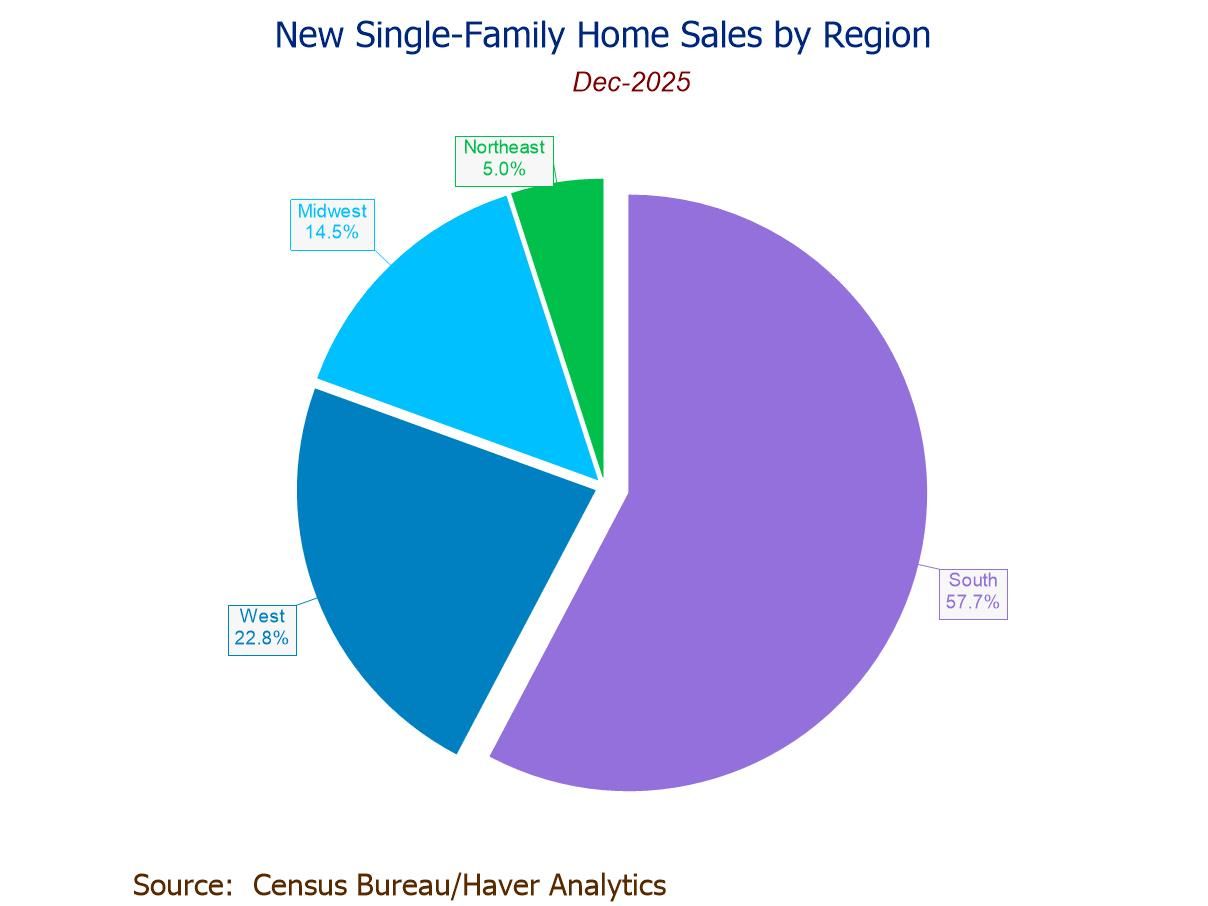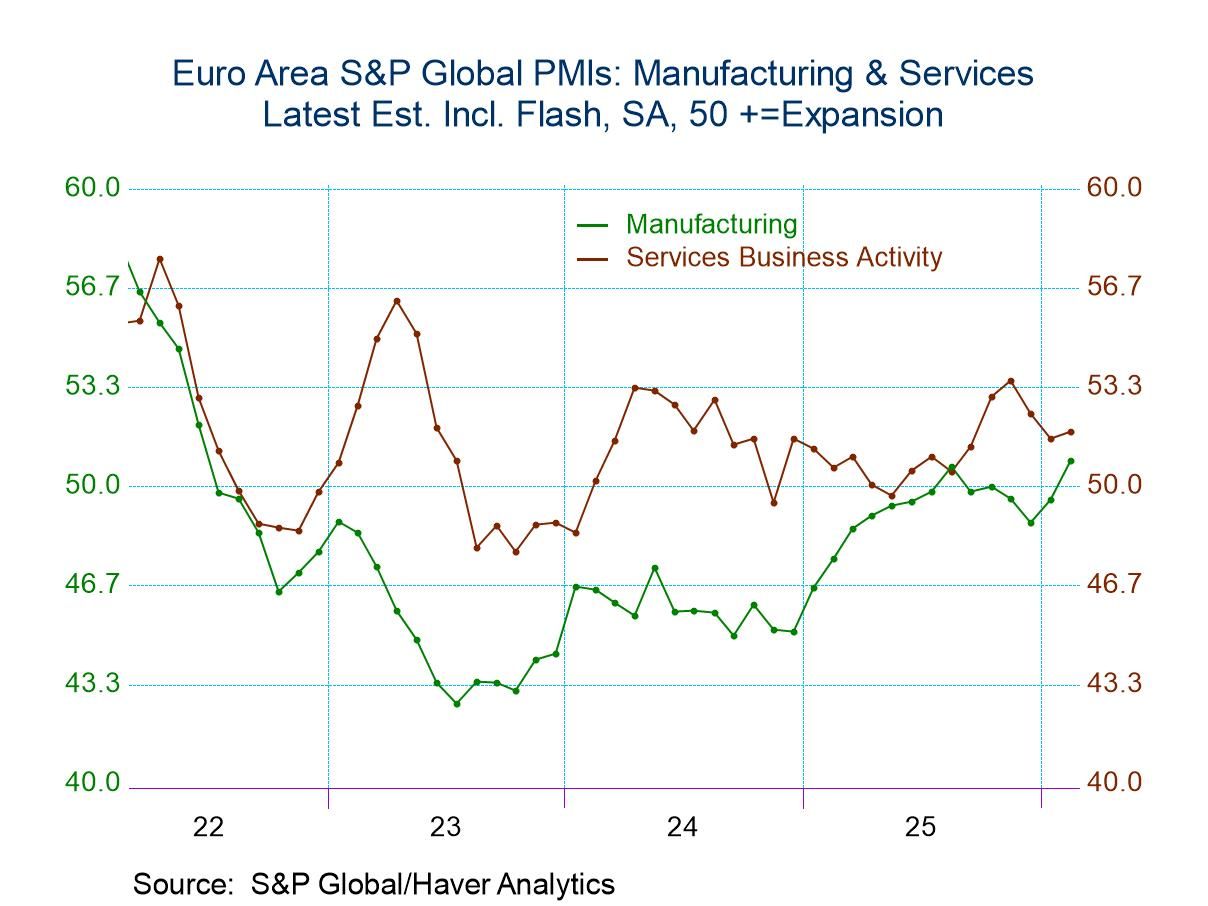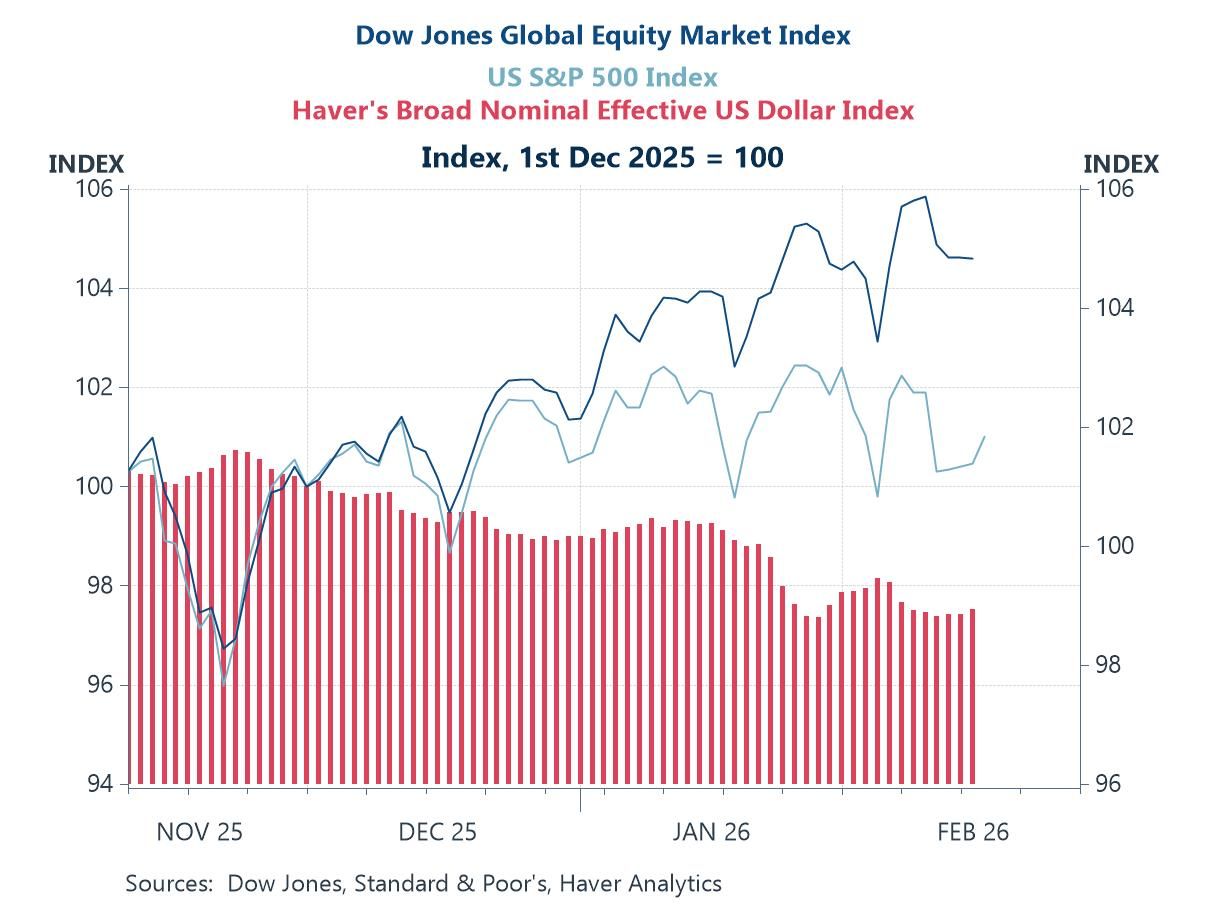 Global| May 31 2011
Global| May 31 2011Mobilize German Demand Instead of its Savings?
Summary
German retail sales have been through a bit of a recovery boom and bust phase and unfortunately they are now digging out of a ‘bust phase’ and not doing so with much vigor. Just last week the Bundesbank said that the German economy [...]
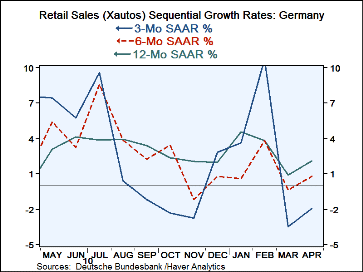 German retail sales have been through a bit of a recovery boom and bust phase and unfortunately they are now digging out of a
‘bust phase’ and not doing so with much vigor.
German retail sales have been through a bit of a recovery boom and bust phase and unfortunately they are now digging out of a
‘bust phase’ and not doing so with much vigor.
Just last week the Bundesbank said that the German economy may be in for some slowing. This is, however, a theme that is broader than just for prospects in Germany.
The simple notion is that Japan’s tsunami has swamped growth around the globe. The more sophisticated query is this: is there more to the global slowing than just that?
Inflation has flared across most countries and even India and China have been taking remedial steps. The ECB gave us one rate hike and, we are on notice that there could be more. In the UK inflation is running well over target. In the US the threat of deflation is gone as everyone is turning to the risks on the other side of things.
Meanwhile, the global factory sector is losing momentum and in developed nations the services sector has yet to really get itself in gear. Services PMIs across countries confirm that that sector (or Non-MFG in the US) has not had the rebound that MFG has had.
In Germany despite strong MFG sector rebound the consumer sector lies moribund. It came to life early this year but has since lost that vigor. Year-over year sales growth is quite tepid in Germany despite the ongoing drop in the rate of unemployment. This month the drop in the number of unemployed slowed but it still dropped. While Germany has been the leading e-Zone nation and is large economy with potentially a lot of pull, the German economy has been led much more by exports than by domestic demand.
Domestic demand in Germany is up by 3.4% Yr/Yr but German exports are up by 12.8% Yr/Yr compared to imports which are up by 10.5% Yr/Yr –all in real terms. Private consumption in Germany is up only 2.1% Yr/Yr (Q1 over Q1 a year ago). Much of the rise in German domestic demand has been to fuel the German export machine, not to satisfy the wants of German consumers.
These metrics confirm that while Germany may seem to be a locomotive of Europe it in fact has been feeding off other countries’ domestic demand and giving back less than it has taken in that regard. Germany’s consumer sector is still not catching fire -- Far from it.
What Germany is doing to contribute to European growth is to re-deploy its capital surplus by backing the EU bailout. But this has become increasingly unpopular in Germany especially as Greece has not been able to hold up its end of the bargain. Greece will not be ready to re-enter capital markets before its loan support runs out so it now needs new money and this will put the EU the IMF and Germany on the hook for more.
Meanwhile the rest of Europe is still struggling and there may be more members in need of more support.
In this environment, getting the German consumer in gear could be very helpful. German demand may be even more in need than German savings.
SAAR
Robert Brusca
AuthorMore in Author Profile »Robert A. Brusca is Chief Economist of Fact and Opinion Economics, a consulting firm he founded in Manhattan. He has been an economist on Wall Street for over 25 years. He has visited central banking and large institutional clients in over 30 countries in his career as an economist. Mr. Brusca was a Divisional Research Chief at the Federal Reserve Bank of NY (Chief of the International Financial markets Division), a Fed Watcher at Irving Trust and Chief Economist at Nikko Securities International. He is widely quoted and appears in various media. Mr. Brusca holds an MA and Ph.D. in economics from Michigan State University and a BA in Economics from the University of Michigan. His research pursues his strong interests in non aligned policy economics as well as international economics. FAO Economics’ research targets investors to assist them in making better investment decisions in stocks, bonds and in a variety of international assets. The company does not manage money and has no conflicts in giving economic advice.



